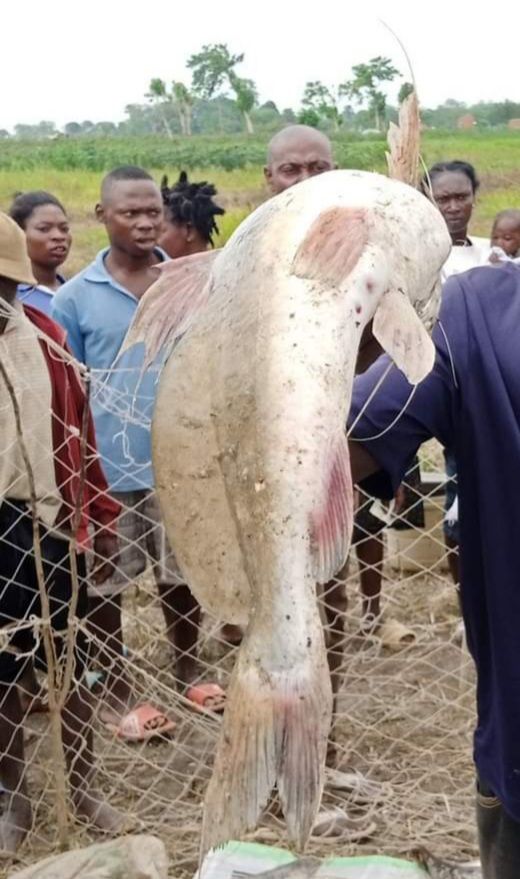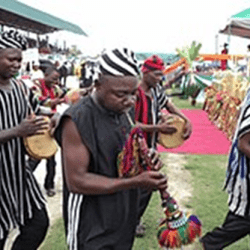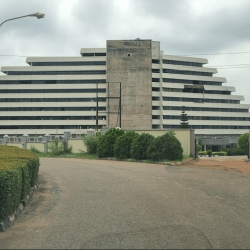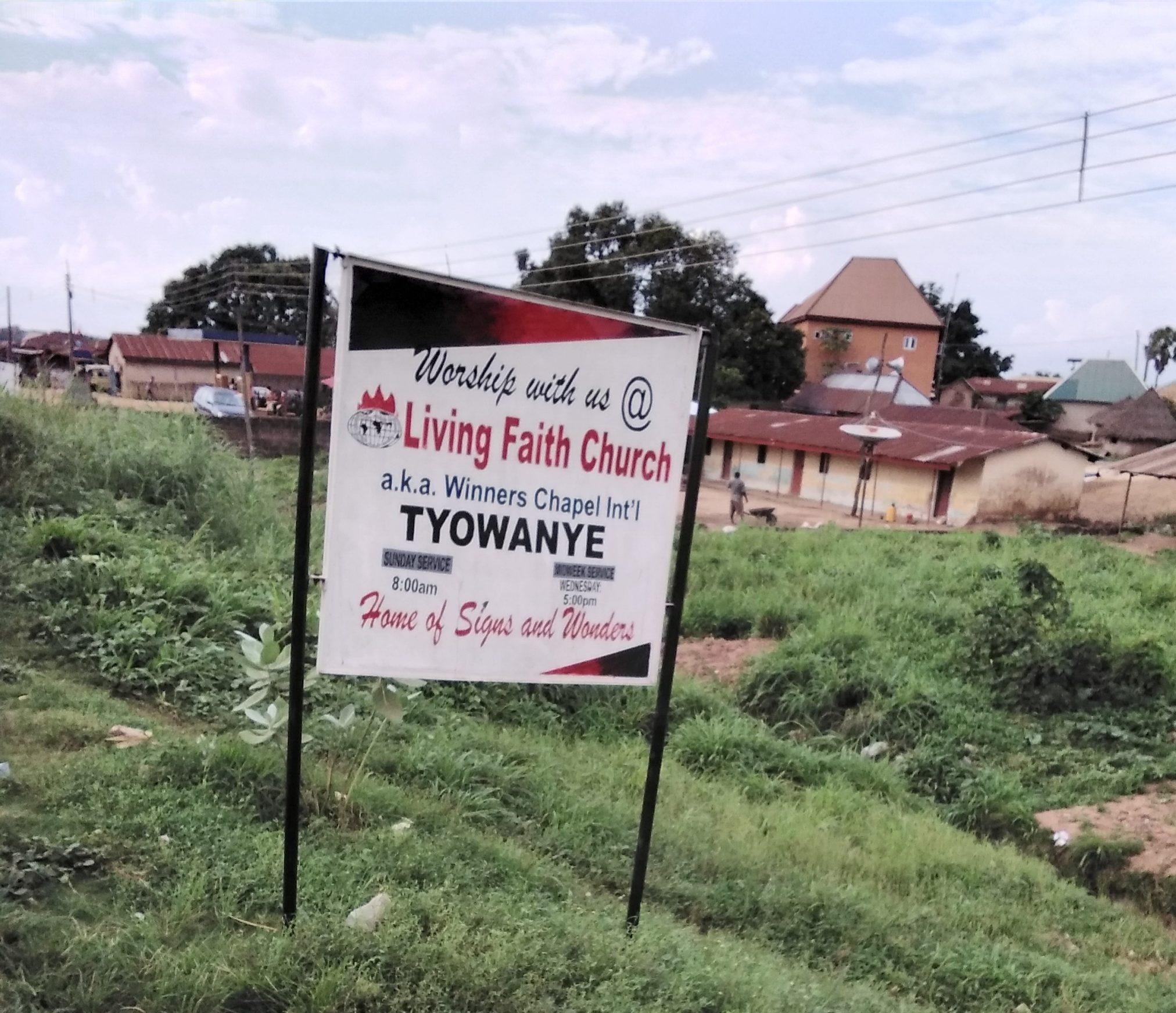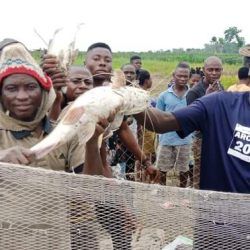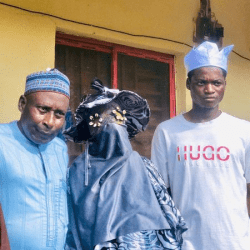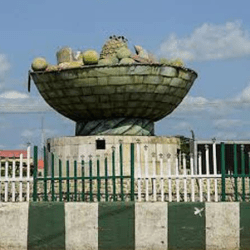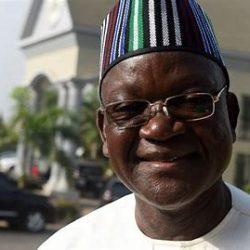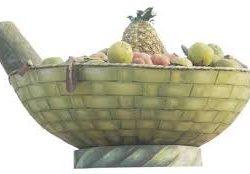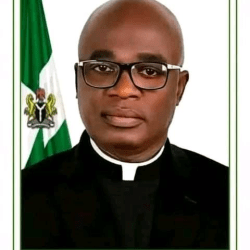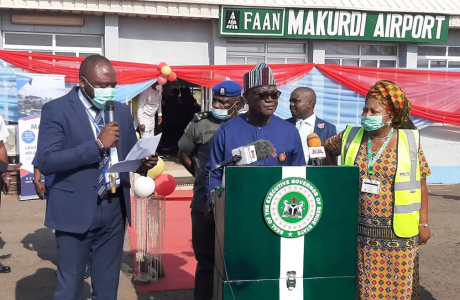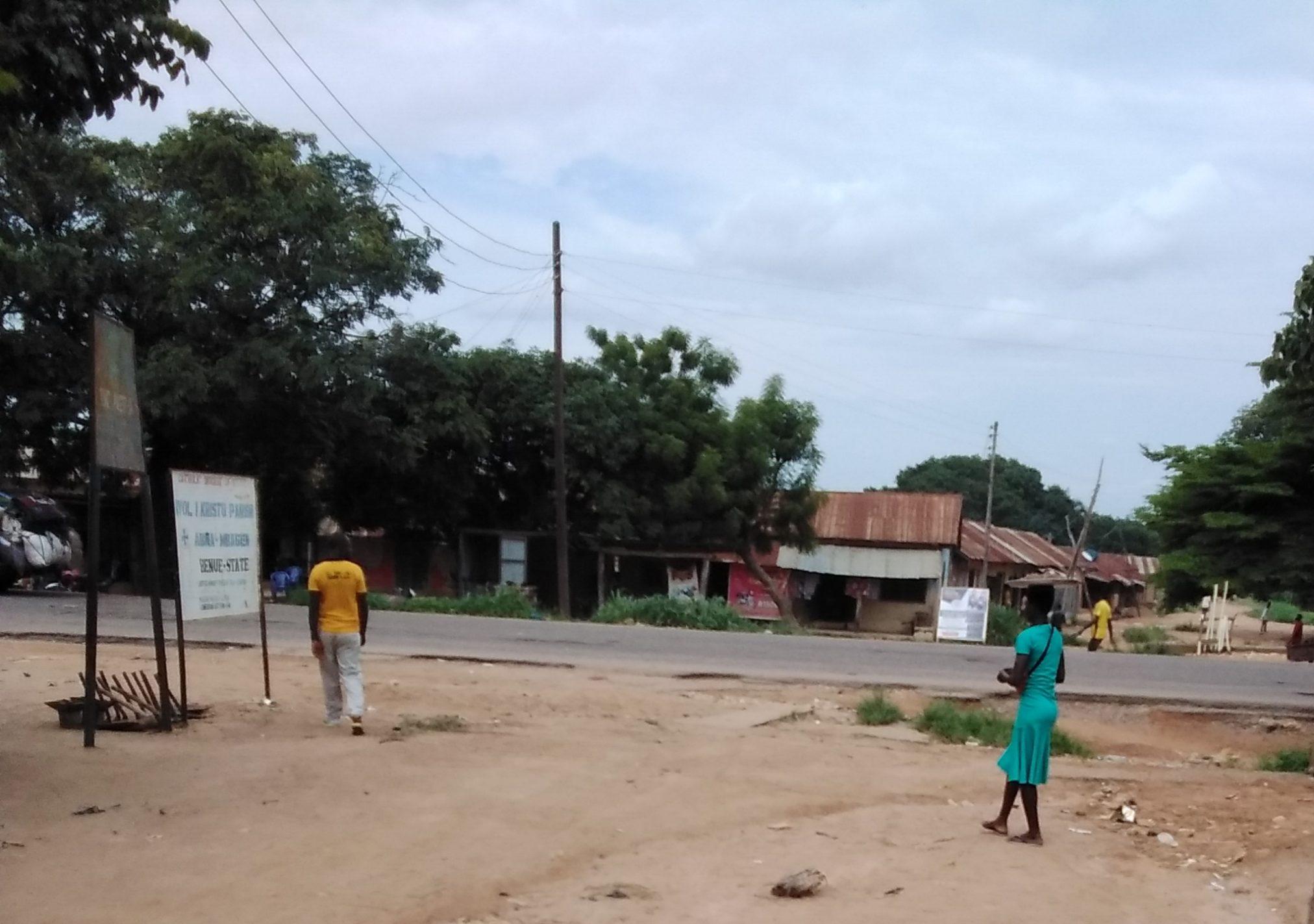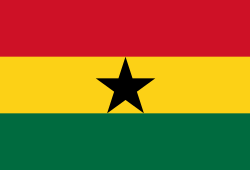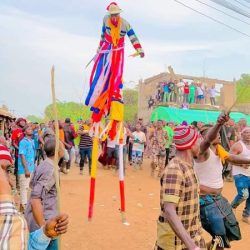Tiv people have a rich cultural heritage which finds expression in colourful cloths, exotic masquerades, supplicated music and dances.
The Tiv kwagh-hir theatre provides memorable entertainment in its dramatization of Tiv folklore and social commentary.

The first organized state-wide kwagh-hir competition festival dates back as far as December 1981 and was initiated by the then Chairman of the Benue State Council for Arts and Culture, Iyorwuese Hagher.
Among the Tiv speaking people of Benue State of Nigeria the word “kwagh-hir” literally means the folktale or simply something magical. It is a unique form of theatre in the generic concept of folktales told in traditional societies all over the world. Folktales are told in virtually all societies all over the world with trickster characters like the rabbit, or the tortoise or the cat dominating their plots and playing unassailable roles. The objectives of these folktales and stories are not only to entertain young children at bedtime but to also teach some morals on contemporary issues. The kwagh-hir theatre is therefore an enactment of the Tiv folktales. Since the Tiv people are good hunters, their stories and imaginations are full of bush animals (Nyam). Some of the episodes of the kwagh-hir feature highly imaginative forms of wild beasts that dance to the melodious tunes of the humans. Tiv folktales are not only told about animals, but spirits (Azov) and puppets (Eev) as well.
In the imagination of the Tiv kwagh-hir theatre, spirits manifest in many fantastic forms performing various activities as are carried among human beings.
What perhaps distinguishes the kwagh-hir theatre from any other theatre in the world is its composite nature bringing together the role of carvers, drummers, singers, masquerades dancers, manipulators and actors. It features a rich repertoire of marionettes performing various human activities with a view to making comment or teaching morals in the Tiv society.
In essence, the kwagh-hir theatre is a unique fusion of the human world, the spiritual world, the animal world and the world of fantasy. All these characters share common music and instrumentation, common beliefs, common world view and common virtues. Although the kwagh-hir performance may not have a single plot as in formal drama, each enactment has its own characters, action and message existing independently.
Benue State
Benue is a state in Nigeria.
Its name is from the major river in the state: River Benue.
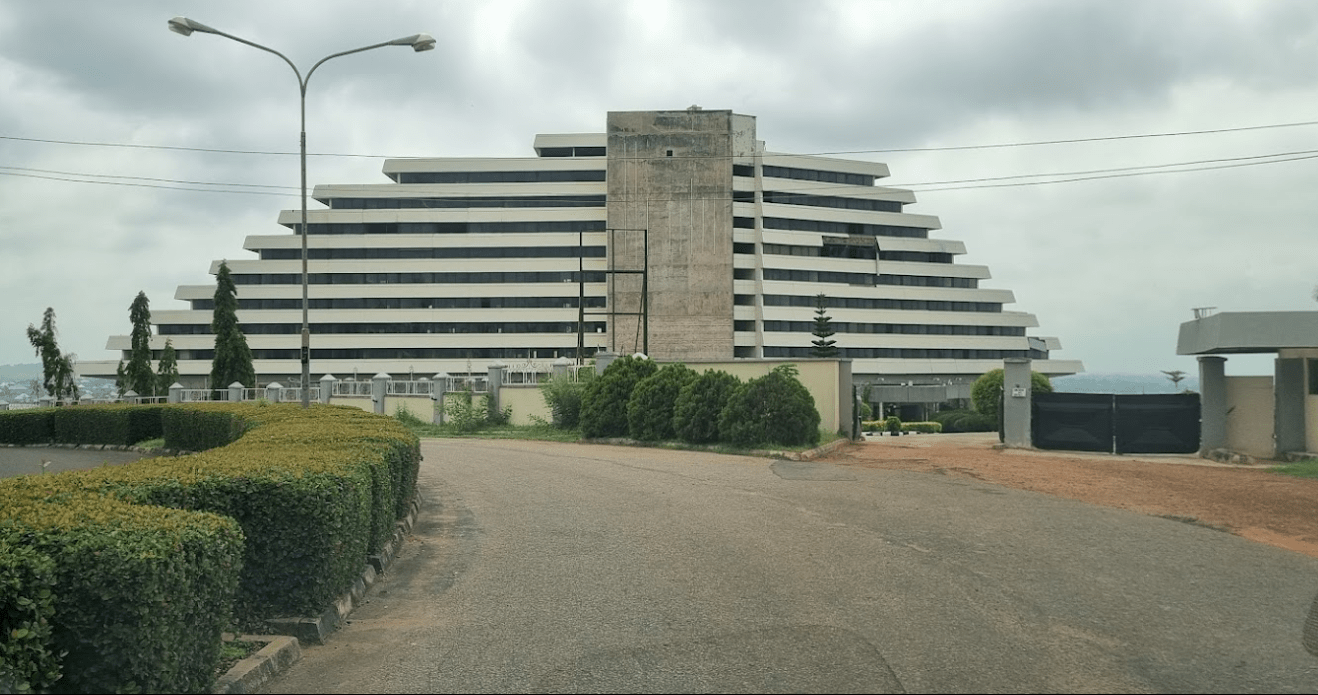
The state is one the six states that make up Nigeria’s North-Central geopolitical zone along with the Federal Capital Territory.
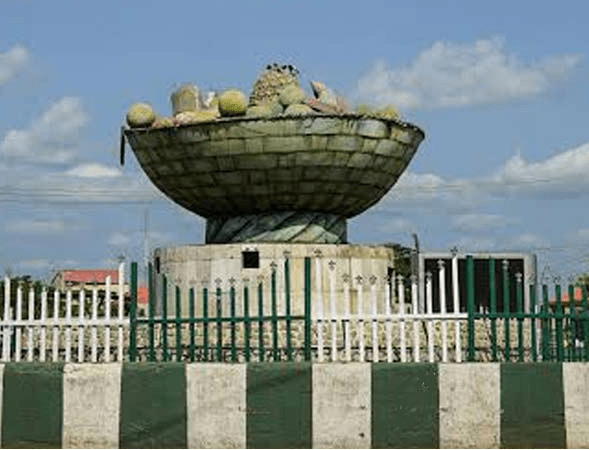
It is located in the Middle Belt region of Nigeria and shares an international boundary with the Republic of Cameroon to the Southeast and interstate boundaries with Nasarawa State to the North, Taraba State to the East, Enugu, Ebonyi and Cross River States to the South, and Kogi State to the West.
Creation: February 3, 1976.
Capital: Makurdi.
Major Cities: Makurdi, Gboko Otukpo, Katsina-Ala, Zaki-Biam, Ukum and Adikpo.
Local Government Areas (LGAs): Ado, Agatu, Apa, Buruku, Gboko, Guma, Gwer East, Gwer West, Katsina-Ala,Konshisha, Kwande, Logo,Makurdi, Obi, Ogbadibo, Ohimini, Oju, Okpokwu, Otukpo, Tarka, Ukum, Ushongo, Vandeikya
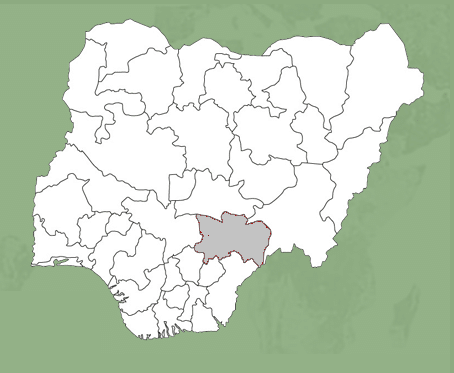
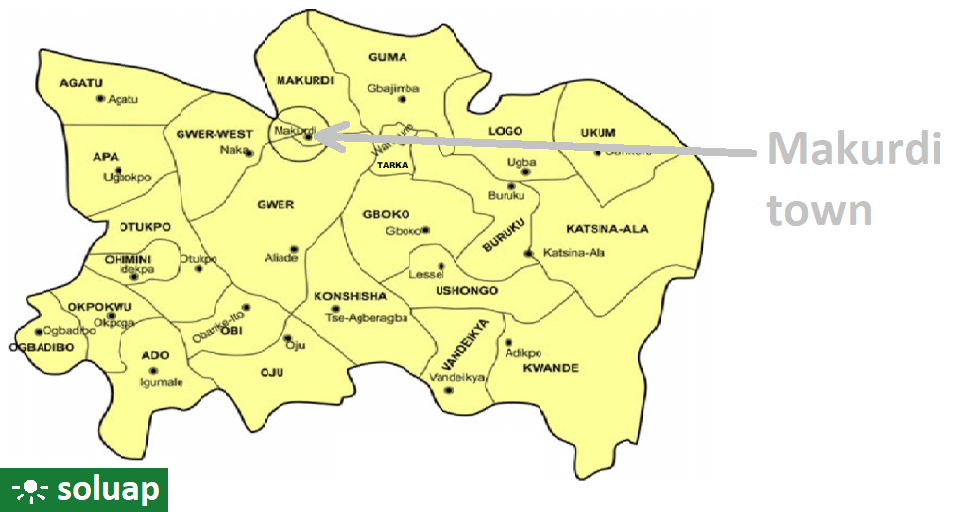
Ethnic Profile: Tiv, Idoma, Igede, Etulo, Abakwa, Jukun, Hausa, Akweya and Nyifon.
The Tiv are the dominant ethnic group, occupying fourteen (14) local government areas, while the Idoma and Igede occupy the remaining nine local government areas.
Economic Profile: Its major agricultural produce include yam, rice, beans, cassava, potatoes, maize, soya beans, sorghum, millet and cocoyam. The state also accounts for over 70% of Nigeria’s soya beans production.
Geographic Location: Its geographic coordinates are longitude 7° 47’ and 10° 0’ East. Latitude 6° 25’ and 8° 8’ north; and shares boundaries with five other states namely: Nassarawa to the north, Taraba to the east, Cross-River to the south, Enugu to the south-west and Kogi to the west. The State also shares a common boundary with the Republic of Cameroun on the south-east.
Landmass: 34,058.3 sq km (13,150 sq mi) – 12th of 27
Benue State covers an area of 34,058.3 square kilometres. It lies at latitude 5°25’ North and longitude 7°30’ East.
Benue gets its name from the Benue River which flows through Makurdi, the state’s capital. The state was originally part of the Northern Region in the three-region structure of 1954. With the creation of twelve federal states by General Yakubu Gowon’s military government in 1967, Benue-Plateau State was established. In 1976 the military government of General Murtala Muhammed created nineteen states out of the existing twelve and Benue-Plateau State was split into Benue and Plateau States.
The Road-Railway Bridge (also known as the Old Bridge) in Makurdi was the first bridge that linked the north and south of Nigeria. It was built in 1932.
PEOPLE
There are several ethnic groups in Benue State: the largest are the Tiv, Idoma, and Igede people.
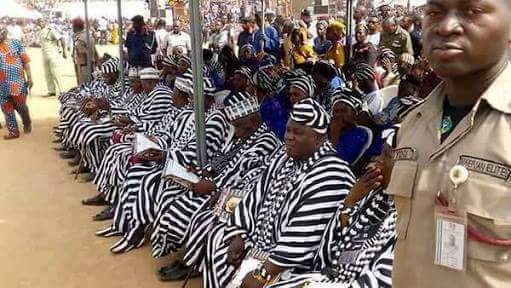
The main religion in the state is Christianity. Traditional religions are also practiced by some of its inhabitants.
MAJOR TOWNS AND CITIES
Makurdi (capital), Gboko, Otukpo, Katsina-Ala, Zaki Biam, Vandeikya, Obi, Okpokwu, and Otukpa.
ECONOMY
The northern parts of Benue State are grass savannah while there is woodland savannah in the south. Agriculture is very important in the state. The state is referred to as the nation’s “food basket” because of its rich and diverse agricultural produce, which include yam, rice, beans, cassava, potato, maize, soya beans, sorghum, millet and coco-yam.
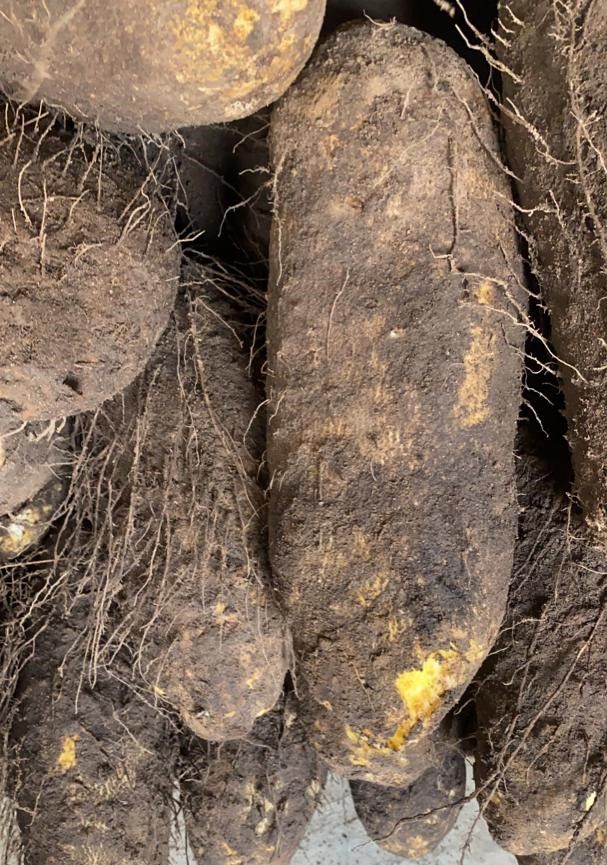
Benue state accounts for over 70 percent of Nigeria’s soya bean production. Fishing in inland waterways and animal husbandry are other significant commercial activities.
The major minerals found in the state include limestone, gypsum, kaolin, lead, zinc, anhydride, coal, calcite, gemstones and magnetite. Breweries and cement manufacturing are its major industries.
EDUCATION
The tertiary institutions in the state are Federal University of Agriculture, Makurdi; Benue State University, Makurdi; University of Mkar, Mkar; College of Education, Katsina-Ala; College of Education, Akperan; Federal Technical School, Otukpo; School of Nursing and Midwifery, Makurdi; Akawe Torkula Polytechnic, Makurdi and Benue State Polytechnic, Ugbokolo.
The Ikyogen hills consists of hills, a waterfall and cattle grazing areas.
CULTURE
The people of Benue State celebrate festivals at different times of the year including Akata fishing festival.
The Akata fishing festival is a symbolic cultural event for people of Akata in Katsina-Ala local government area. The annual festival brings together Tiv, Jukun and Etulo fishermen to compete for prizes.
Big fish caught in Katsina-Ala River in Benue State
